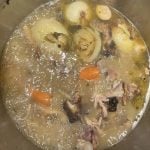The farmers in this Combine to Customer course were more boisterous than usual, said organizers and grain industry officials.
They gave a whole new dimension to the term ladylike behaviour.
“It’s been a great time,” said Raeanne Renouf of Melfort, Sask., as she toured the Canadian International Grains Institute’s laboratories and processing centre on Winnipeg’s Main Street.
Renouf and 31 other female farmers took part in this special all-woman Combine to Customer course, organized by the Canadian Wheat Board. The program shows prairie farmers how the rest of the grain industry works.
Read Also

Rural emergency room closures continue to be vexing problem
Staffing issues are at the root of disruptions and closures in hospital emergency departments, both in rural and urban Canadian locations.
Usually the farmer groups are mainly male, but the board found that many women involved in farming were interested in participating but not keen to be the only woman present.
So it set up this all-female group, following the success of similar programs conducted in Saskatchewan.
During their tour of CIGI, the female farmers peppered researchers and staff with questions, showing far more assertiveness than groups of male farmers typically do.
And unlike the commonly reticent groups of male farmers, these women were talkative and joked with each other throughout the course, making it both refreshing and more demanding for officials, who found themselves answering lots of questions they weren’t used to hearing.
Renouf said she found it unusual and comforting to be with the group, because as a full-time farmer she’s often the only woman in a room of farmers.
“You have to be willing to stand out in a crowd,” said Renouf. “I’m often the only lady there.”
Without the men present, these farm women didn’t feel foolish asking what might otherwise be considered dumb questions, one said. Among women, being curious isn’t seen as revealing ignorance.
Jennifer Martens, a 25-year-old farmer from Elbow, Sask., said she was fascinated by the complexity of the grain industry and interested in hearing about the different uses of prairie grains.
“For me, sitting at home on the farm, I can’t go talk to a customer in Japan,” said Martens, who has a biology degree and farms with her husband, his parents and his brother.
“Here I can find out what they’re saying and what they want.”
Renouf said she liked being able to see the end uses for the crops she grows because sometimes the grading specifications seem mysterious.
“I like knowing how what we produce affects the rest of the industry,” said Renouf, a full-time farmer whose husband works off-farm as a doctor.
“It gives me more knowledge for what to grow on the farm at home.”
Most women on farms are seen as the helpers for their husbands, but more women are taking a more active role these days and Martens said she hopes courses like this can help her become a more valuable member of the farm team.
“I’m looking to do more in the field, for the farm,” she said.
For Renouf, being with a group of women also committed to farming helped vindicate her career choice.
“I’m proud to be a farmer,” said Renouf, who is 43 years old and has farmed since the mid-1980s. “I have an accounting background, but I choose to do this. I’d appreciate it more if it was a better living, but I’m trying,” she said with a laugh.
















